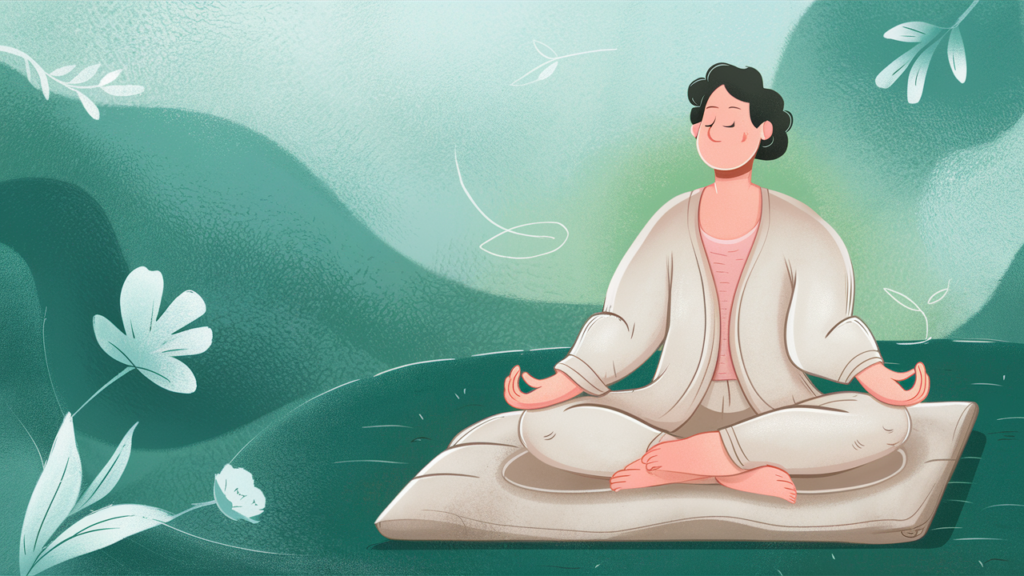Table of Contents
However, mindfulness meditation offers a powerful antidote to this modern malaise. By cultivating a state of present-moment awareness, mindfulness meditation helps to alleviate stress, promote mental clarity, and enhance overall well-being. In this comprehensive guide, we will explore the benefits of mindfulness meditation for stress relief and provide practical tips to help you incorporate this practice into your daily life.

Understanding Mindfulness Meditation
Mindfulness meditation is a practice rooted in ancient Buddhist traditions, yet it has gained significant popularity in the modern world due to its profound benefits for mental health. At its core, mindfulness meditation involves paying attention to the present moment without judgment. This practice encourages individuals to observe their thoughts, emotions, and bodily sensations with a sense of curiosity and acceptance.
The Science Behind Mindfulness Meditation and Stress Relief
Numerous scientific studies have highlighted the positive impact of mindfulness meditation on stress reduction. Additionally, mindfulness meditation activates the parasympathetic nervous system, which promotes relaxation and counteracts the fight-or-flight response triggered by stress.
Benefits of Mindfulness Meditation for Stress Relief
- Reduced Anxiety and Depression: Mindfulness meditation helps in breaking the cycle of rumination, a common contributor to anxiety and depression. By focusing on the present moment, individuals can detach from negative thought patterns and cultivate a sense of calm.
- Improved Emotional Regulation: Mindfulness enhances emotional regulation by increasing awareness of one’s emotional state. This heightened awareness allows individuals to respond to stressors with greater equanimity and resilience.
- Enhanced Concentration and Focus: Stress often impairs cognitive function, leading to difficulties in concentration and memory. Mindfulness meditation improves cognitive abilities by training the mind to stay focused on the present task.
- Better Sleep Quality: Chronic stress can disrupt sleep patterns, leading to insomnia and other sleep disorders. Mindfulness meditation promotes relaxation and improves sleep quality, ensuring better overall health.
- Strengthened Immune System: Stress weakens the immune system, making the body more susceptible to illnesses. Regular mindfulness practice has been shown to enhance immune function, promoting better physical health.

How to Practice Mindfulness Meditation for Stress Relief
- Find a Quiet Space: Choose a quiet and comfortable place where you can sit undisturbed for a few minutes.
- Set a Timer: Start with a short duration, such as 5-10 minutes, and gradually increase the time as you become more comfortable with the practice.
- Sit Comfortably: Sit in a comfortable position with your back straight. You can sit on a chair, cushion, or mat, whichever feels most comfortable for you.
- Observe Without Judgment: As you meditate, you may notice thoughts, emotions, or physical sensations arising. Instead of getting caught up in them, observe them with a sense of curiosity and non-judgment.
- Practice Regularly:Try to practice daily, even if it’s just for a few minutes. Over time, you will notice a significant reduction in your stress levels and an improvement in your overall well-being.
Tips for Deepening Your Mindfulness Practice
- Start with Guided Meditations: If you’re new to mindfulness meditation, guided meditations can be incredibly helpful. There are numerous apps and online resources that offer guided sessions led by experienced practitioners.
- Incorporate Mindfulness into Daily Activities: Mindfulness is not limited to sitting meditation. You can practice mindfulness during daily activities such as eating, walking, or even washing dishes. Focus on the sensory experiences and be fully present in the moment.
- Join a Meditation Group: Practicing mindfulness with others can provide additional motivation and support. Look for local meditation groups or online communities where you can share your experiences and learn from others.
- Be Patient with Yourself: Mindfulness meditation is a skill that takes time to develop. Be patient with yourself and avoid judging your progress. Remember that every moment of mindfulness, no matter how brief, contributes to your overall well-being.

Conclusion: Embrace Mindfulness for a Stress-Free Life
Incorporating mindfulness meditation into your daily routine can transform your relationship with stress and enhance your overall quality of life. By practicing mindfulness, you cultivate a state of inner peace, resilience, and emotional balance. Start with small steps, be consistent, and watch as mindfulness meditation becomes a powerful tool for stress relief and personal growth. Embrace the present moment, and let mindfulness guide you towards a happier, healthier, and stress-free life.
